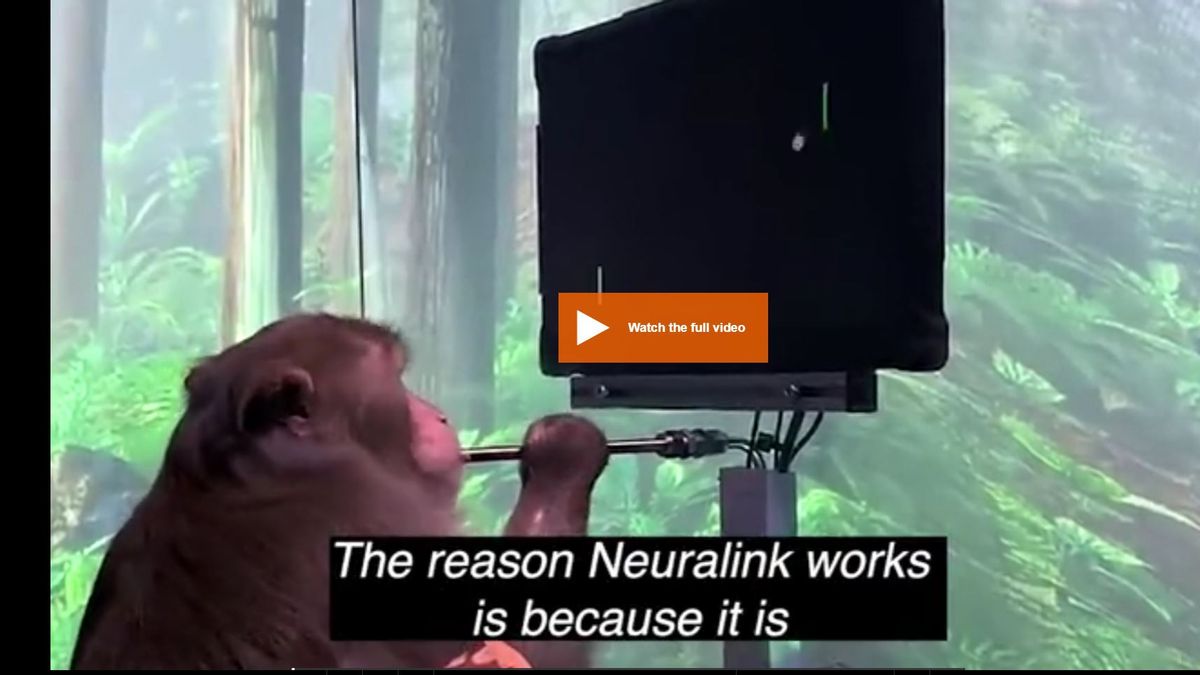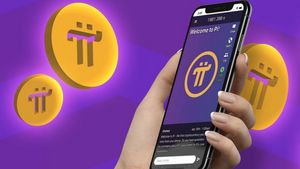JAKARTA – Elon Musk claims Neuralink, one of his brain interface technology companies, less than a year from being able to implant a chip into the human brain.
The news emerged from the billionaire himself during a live-streamed interview with The Wall Street Journal CEO Council Summit on Monday, December 6. At that time he was asked about his company's plans for 2022.
"Neuralink works well on monkeys and we actually just did a lot of testing and just made sure that it's very safe and reliable and the Neuralink device can be removed safely," said Elon Musk, as quoted by Dailymail.com.
"We hope to have this in our first humans — which will target people with severe spinal cord injuries such as tetraplegia, paralysis — next year, pending FDA (food and drugs administration) approval," he said.
"I think we have a chance to allow someone who can't walk or use their arm to walk again (by implanting a chip into the brain) but not naturally," he added.
On April 9, 2021, Neuralink showed off his brain chip to a monkey, which allowed the animal to play a game of Pong using only its mind.
Devices in the animal's brain record information about the neurons fired while playing a game, and even learn to predict the movements it will make.
"Basically, the monkey looks normal, but he plays video games telepathically, which I think is pretty deep," Musk said in a live interview Monday, December 6.
The Neuralink system consists of a computer chip attached to tiny flexible threads that are sewn into the brain by a robot 'like a sewing machine'. The device picks up signals in the brain, which are then translated into motor control.
Musk says the technology has been shown to be safe on the brain and can be easily removed, so the only thing holding Neuralink from human trials is FDA approval.
"Our standards for implanting devices are higher than FDA-approved, just as our standards for safety are much higher than what the US government requires," he added.
Musk shared a tweet last Monday reiterating the 2022 timeline, stating that Neuralink's progress will accelerate after the device "in humans next year."
However, the billionaire has promised to start human trials before – in 2019, he is eyeing testing by the end of 2020.
Musk also has a reputation for building anticipation for his company's technology, only to deliver and disappoint.
Before Neuralink was seen in monkey brains, Musk first demonstrated it in pigs.
The company's first demonstration took place on August 28, 2020, in an event that Musk touted by saying Neuralink would "show neurons firing in real-time."
Even though that was what was presented during the live demonstration, those listening were disappointed when the neurons were a pig named Gertrude and not a human.
However, Musk seems very confident in the 2022 timeline and Neuralink's ability to help paralyzed people walk again while speaking on Monday.
"This is a very big problem, and I don't want to raise expectations unreasonably, but I believe it can be done," he said.
In addition to helping people walk again, Musk also said the Neuralink chip could help cure people of addiction and depression.
In a tweet posted July 2020, the billionaire replied to a tweet from a user asking if implants could 'retrain parts of the brain' associated with disease.
SEE ALSO:
Pranay Pathhole, a Twitter user, wrote: 'Can Neuralink be used to retrain the parts of the brain that are responsible for causing addiction or depression?'
“It would be great if neurallink could be used for something like curing addiction/depression.”
"Naturally. This is great & scary," Musk wrote in response.
In May 2020, Musk spoke on Joe Rogan's podcast to discuss how Neuralink will have his version of the brain implant ready 'within a year.'
Musk explained that the process involved removing a piece of the skull, the robot then inserting electrodes into the brain and the device into the hole, with only a small scar remaining.
He also revealed that the technology could develop into a full-brain interface in just 25 years, which would enable a 'symbiosis' between humans and AI.
"You don't need to talk," said Musk, who predicts the technology will go further to enable 'symbiosis' between humans and AI.
"We've become cyborgs to some degree," Musk told Rogan.
The English, Chinese, Japanese, Arabic, and French versions are automatically generated by the AI. So there may still be inaccuracies in translating, please always see Indonesian as our main language. (system supported by DigitalSiber.id)

















